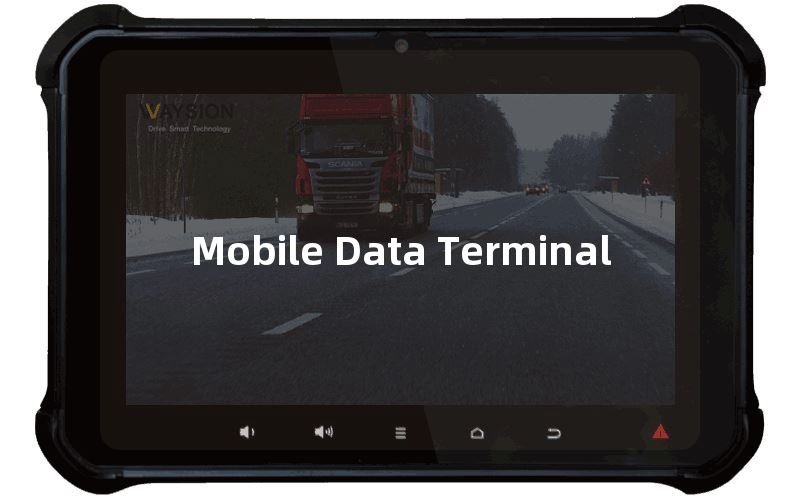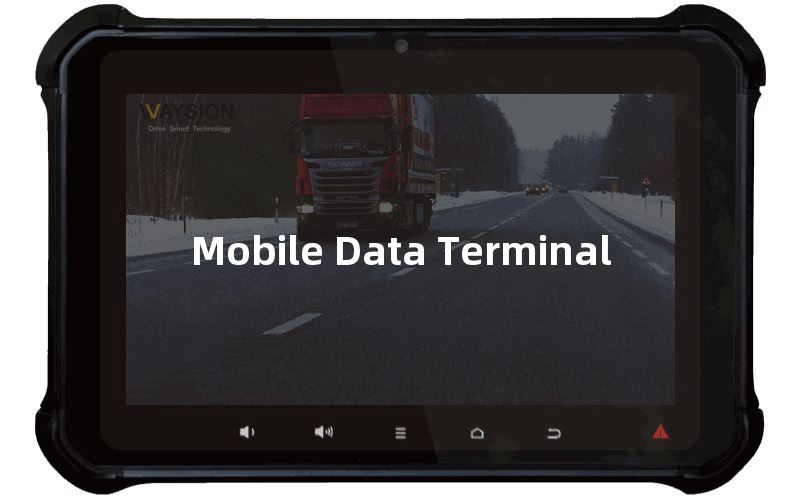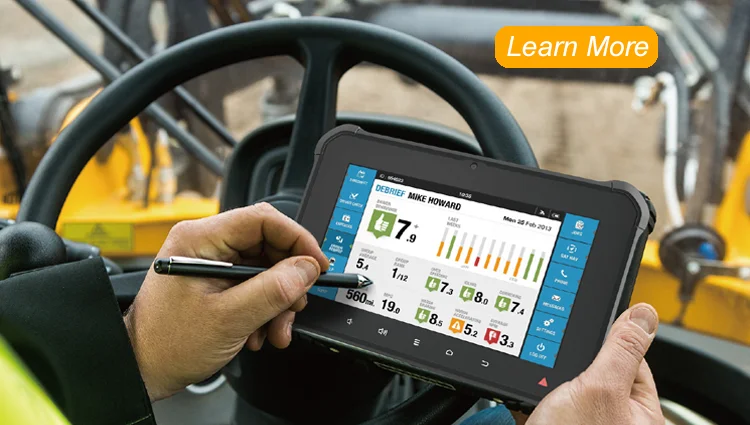In today’s fast-paced, technology-driven world, businesses and organizations rely heavily on efficient data management systems. One such system that has revolutionized various industries is the Mobile Data Terminal (MDT). But what exactly is a Mobile Data Terminal, and why is it so crucial?

- What is a Mobile Data Terminal?
- Importance of Mobile Data Terminals
- History and Evolution
- Components of a Mobile Data Terminal
- Types of Mobile Data Terminals
- Key Features and Capabilities
- Applications in Different Industries
- Benefits of Using Mobile Data Terminals
- Challenges and Considerations
- Future Trends in Mobile Data Terminals
- Choosing the Right Mobile Data Terminal
- Case Studies
- Mobile Data Terminals vs. Traditional Data Collection Methods
- Implementation Strategies
- Maintaining Mobile Data Terminals
- Conclusion
- FAQs
What is a Mobile Data Terminal?
A Mobile Data Terminal (MDT) is a computerized device used in vehicles and remote locations to communicate with a central dispatch office. These terminals facilitate real-time data access, communication, and reporting, making them indispensable tools in various fields.
Importance of Mobile Data Terminals
MDTs have transformed the way organizations manage their operations. By providing instant access to critical information and enabling seamless communication, these devices enhance operational efficiency, reduce response times, and improve overall productivity.
History and Evolution
Early Development
The concept of MDTs dates back to the early days of mobile communication technology. Initially, these devices were bulky and limited in functionality, often confined to basic communication and data entry tasks.
Modern Advancements
Today, MDTs are sleek, powerful, and multifunctional. They incorporate advanced features such as GPS, real-time data processing, and wireless connectivity, making them more versatile and efficient than ever before.
Components of a Mobile Data Terminal
Hardware Components
Modern MDTs consist of various hardware components, including ruggedized screens, processors, GPS modules, and wireless communication interfaces. These components are designed to withstand harsh environments and ensure reliable performance.
Software Components
The software running on MDTs includes operating systems, applications for data entry and retrieval, GPS navigation software, and communication programs. This software is often customized to meet the specific needs of different industries.
Types of Mobile Data Terminals
Fixed-Mount Terminals
Fixed-mount MDTs are permanently installed in vehicles or at specific locations. They offer stability and robust performance, making them ideal for applications requiring continuous operation.
Portable Terminals
Portable MDTs are handheld or easily detachable devices, providing flexibility for users who need to move between different locations. These terminals are commonly used in field service management and healthcare.
Key Features and Capabilities
Real-time Data Access
One of the most significant advantages of MDTs is their ability to provide real-time data access. This feature ensures that users always have the most up-to-date information at their fingertips.
GPS Functionality
Integrated GPS functionality allows for precise location tracking and navigation. This capability is crucial for applications such as fleet management and emergency response.
Communication Capabilities
MDTs facilitate various forms of communication, including voice, text, and data transmission. This versatility ensures that users can stay connected, regardless of their location.
Applications in Different Industries
Public Safety
In public safety, MDTs are used by police, fire, and emergency medical services to access critical information, dispatch units, and communicate with other responders.
Transportation
The transportation industry relies on MDTs for fleet management, route optimization, and real-time tracking of vehicles and cargo.
Healthcare
Healthcare providers use MDTs to access patient records, update treatment information, and coordinate care among different facilities and personnel.
Field Service Management
MDTs enable field service technicians to receive job assignments, access repair manuals, and update service records on the go, improving efficiency and customer satisfaction.

Benefits of Using Mobile Data Terminals
Efficiency Improvement
MDTs streamline operations by providing instant access to necessary information and facilitating quick decision-making, thereby improving overall efficiency.
Cost Reduction
By automating tasks and reducing the need for manual data entry, MDTs help organizations save on labor costs and minimize errors.
Enhanced Communication
Seamless communication between field personnel and central offices ensures that everyone is on the same page, leading to better coordination and productivity.
Challenges and Considerations
Security Concerns
As with any connected device, MDTs are vulnerable to cyber threats. Ensuring robust security measures is essential to protect sensitive data.
Maintenance and Upgrades
Regular maintenance and timely upgrades are crucial to keep MDTs functioning optimally and to extend their lifespan.
User Training
Proper training is necessary to ensure that users can effectively operate MDTs and leverage their full capabilities.
Future Trends in Mobile Data Terminals
Integration with IoT
The Internet of Things (IoT) will play a significant role in the future of MDTs, enabling even more interconnected and intelligent systems.
AI and Machine Learning
Artificial Intelligence (AI) and machine learning technologies will enhance the capabilities of MDTs, allowing for predictive maintenance, smarter routing, and more efficient data processing.
Enhanced Connectivity
Advancements in wireless technology, including 5G, will provide faster and more reliable connectivity for MDTs, further improving their performance and usability.
Choosing the Right Mobile Data Terminal
Assessing Needs
Identify the specific needs of your organization to choose an MDT that meets your requirements effectively.
Budget Considerations
Consider your budget constraints and look for MDTs that offer the best value for money without compromising on essential features.
Future Scalability
Select an MDT that can be easily upgraded or expanded to accommodate future growth and technological advancements.
Case Studies
Success Stories from Different Sectors
Various industries have successfully implemented MDTs to improve their operations. For instance, a logistics company reduced delivery times by 20% using real-time tracking and route optimization provided by MDTs.
Mobile Data Terminals vs. Traditional Data Collection Methods
Speed and Accuracy
MDTs offer faster and more accurate data collection compared to traditional methods, reducing the likelihood of errors and improving data quality.
Cost Comparison
While the initial investment in MDTs may be higher, the long-term savings from increased efficiency and reduced errors make them a cost-effective solution.
Implementation Strategies
Planning and Deployment
A well-thought-out plan and careful deployment are essential to ensure the successful implementation of MDTs. This includes selecting the right devices, setting up necessary infrastructure, and integrating with existing systems.
Training and Support
Providing comprehensive training and ongoing support will help users adapt to the new technology and maximize its benefits.
Maintaining Mobile Data Terminals
Regular Updates
Keep the software and firmware of MDTs updated to benefit from the latest features and security patches.
Troubleshooting Common Issues
Have a plan in place for troubleshooting common issues, such as connectivity problems or hardware malfunctions, to minimize downtime.
Conclusion
Mobile Data Terminals have become indispensable tools in various industries, offering numerous benefits such as improved efficiency, cost savings, and enhanced communication. As technology continues to evolve, MDTs will play an increasingly critical role in enabling smarter, more connected operations.
FAQs
What is the primary purpose of a Mobile Data Terminal?
The primary purpose of an MDT is to provide real-time data access, communication, and reporting for field personnel and vehicles.
How do Mobile Data Terminals improve efficiency?
MDTs improve efficiency by streamlining data entry and retrieval processes, reducing response times, and facilitating better communication.
What are the common industries using Mobile Data Terminals?
Common industries using MDTs include public safety, transportation, healthcare, and field service management.
What are the main security concerns with Mobile Data Terminals?
The main security concerns with MDTs involve protecting sensitive data from cyber threats and ensuring secure communication channels.
How can businesses choose the right Mobile Data Terminal?
Businesses can choose the right MDT by assessing their specific needs, considering their budget, and ensuring the device offers future scalability.

